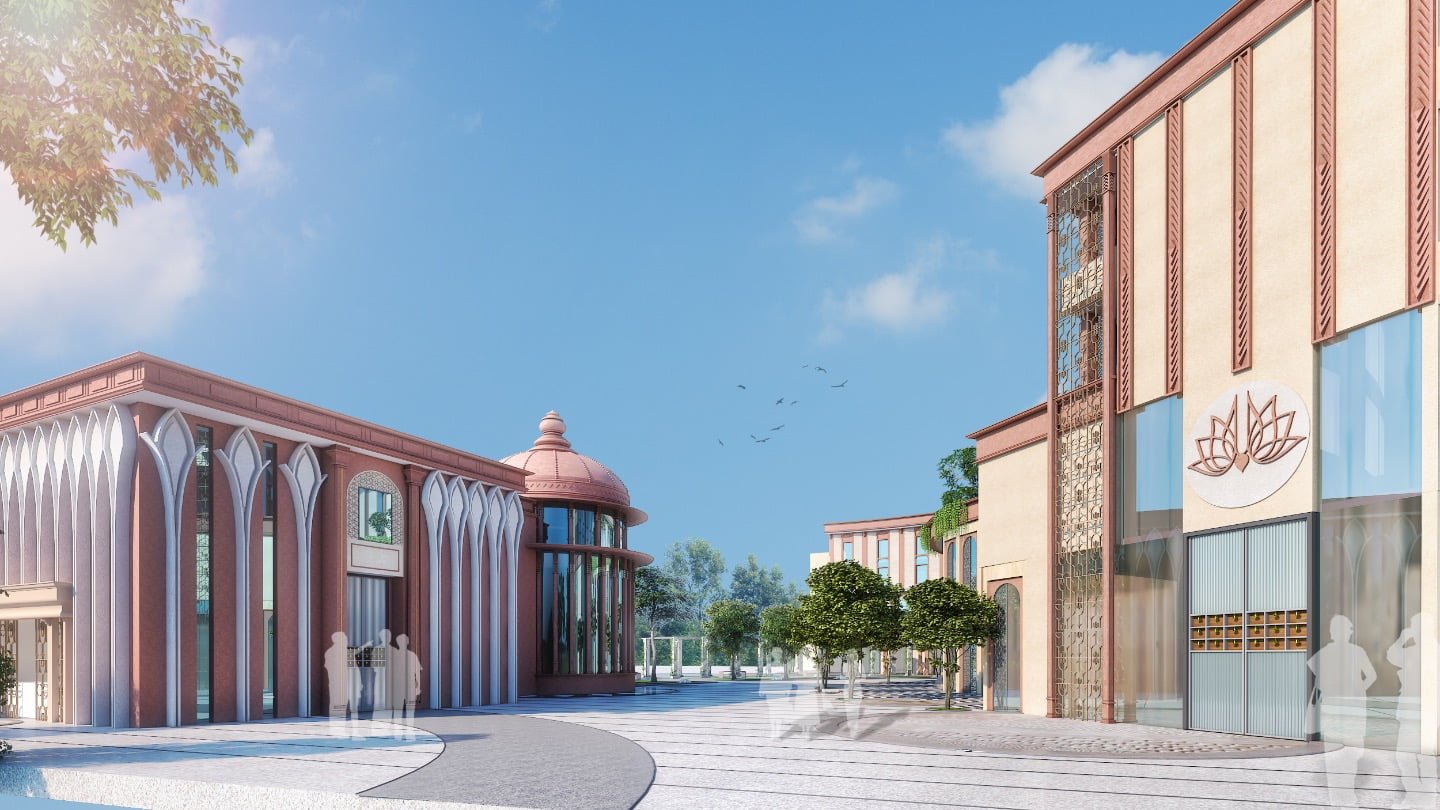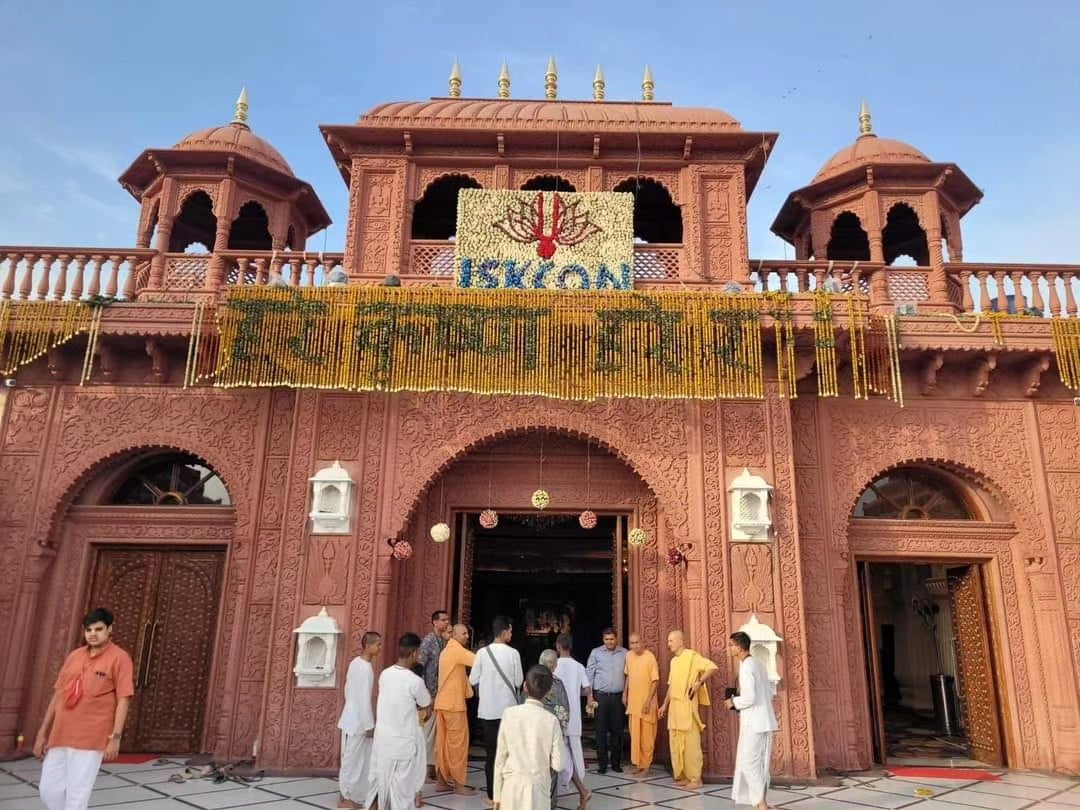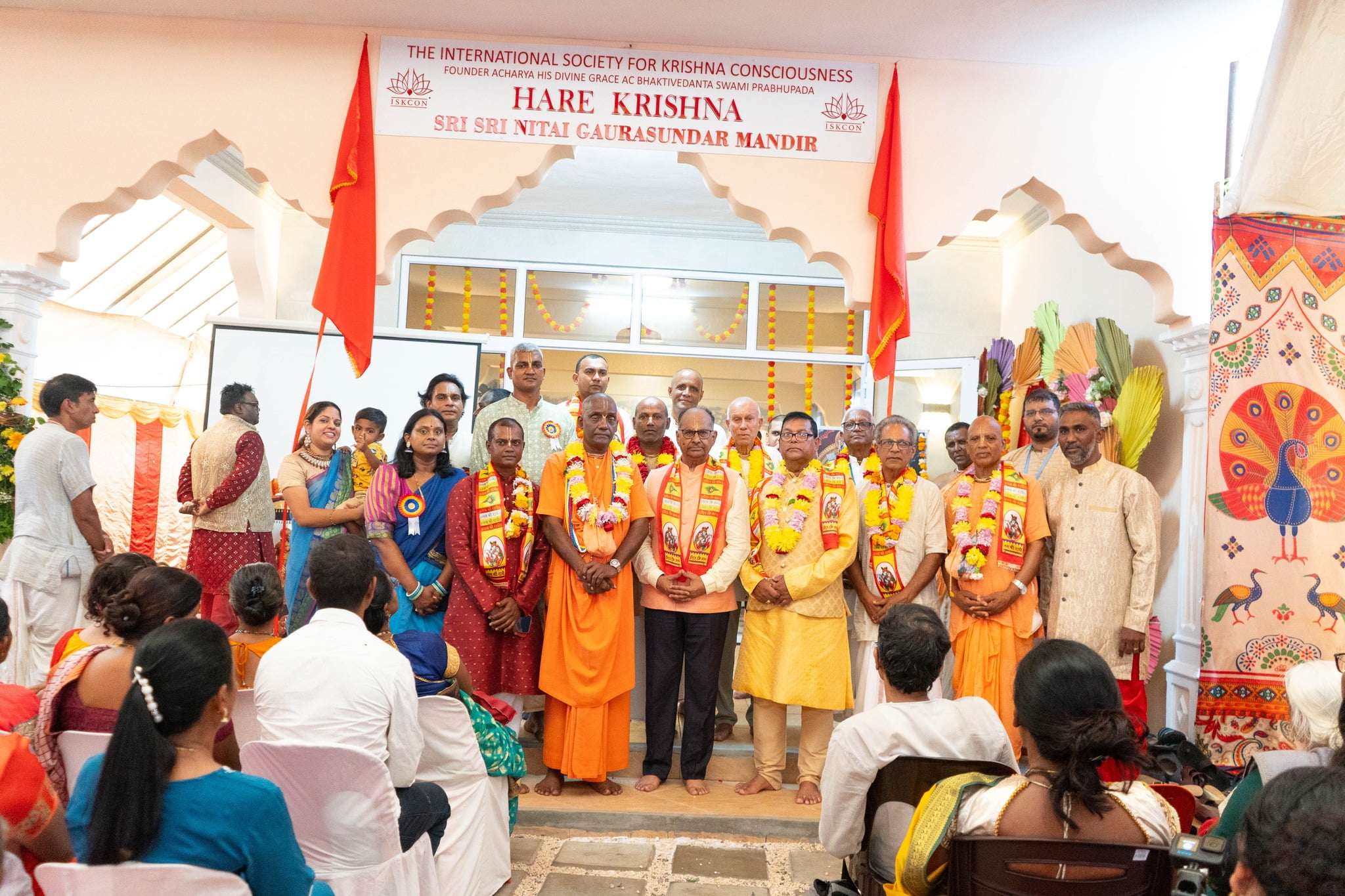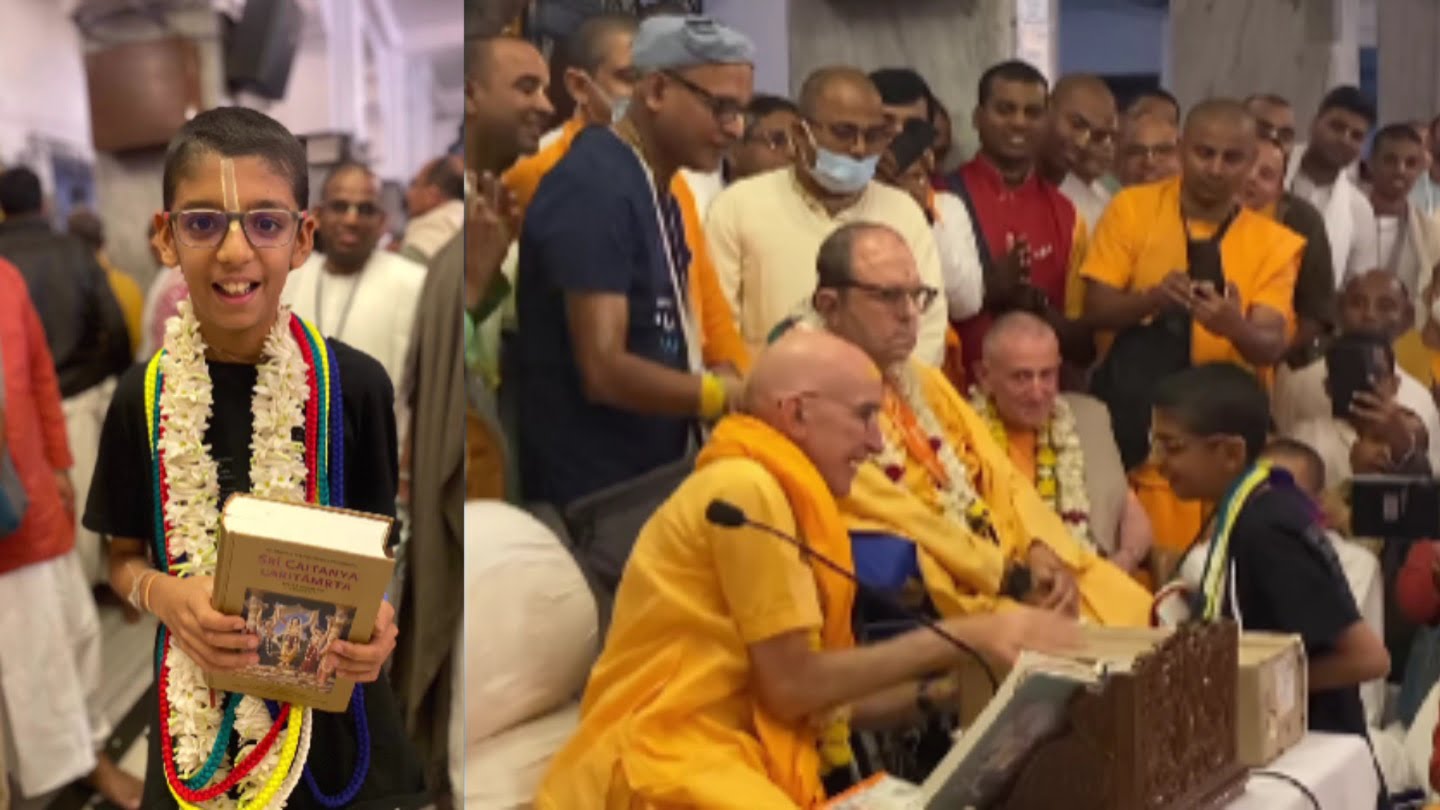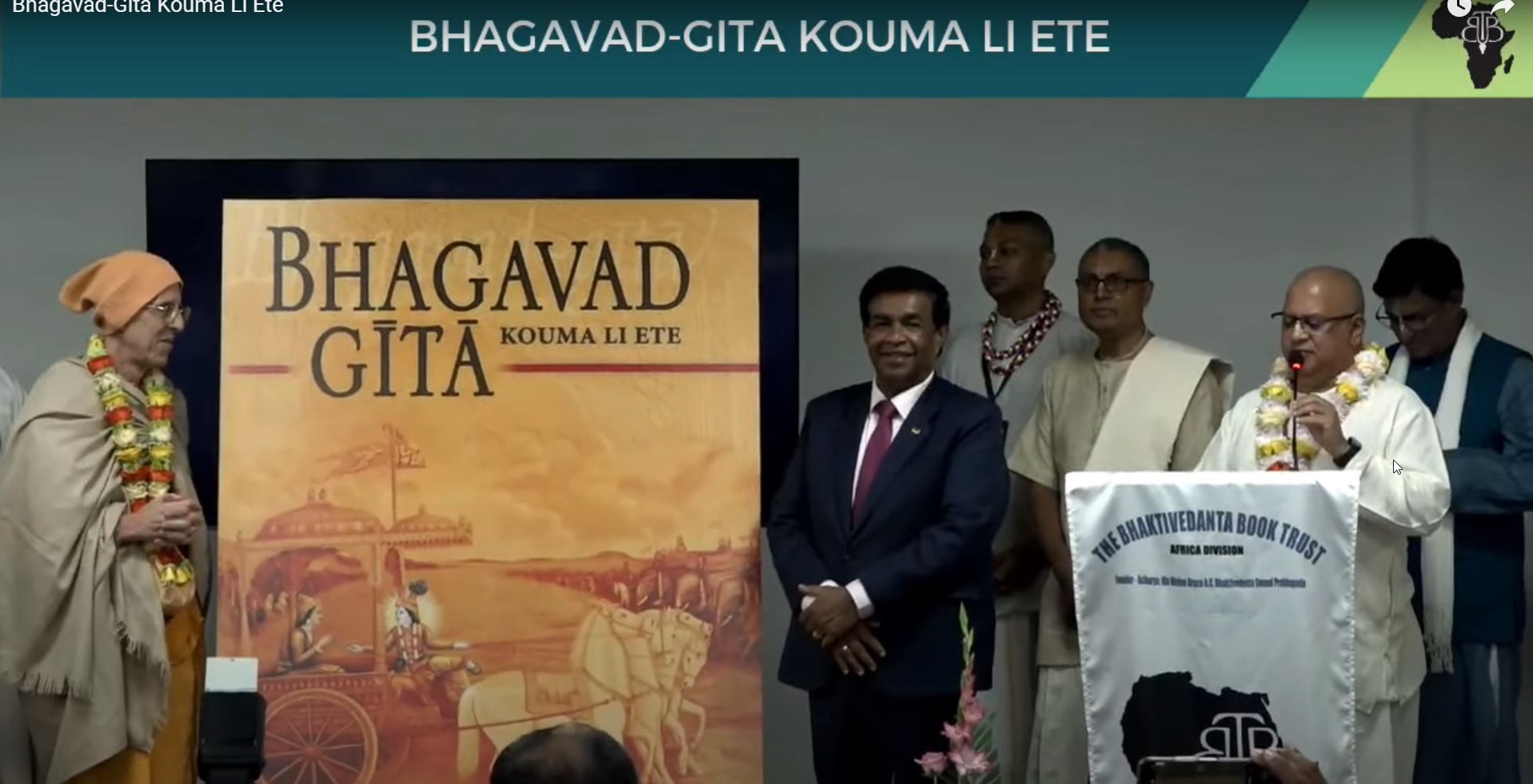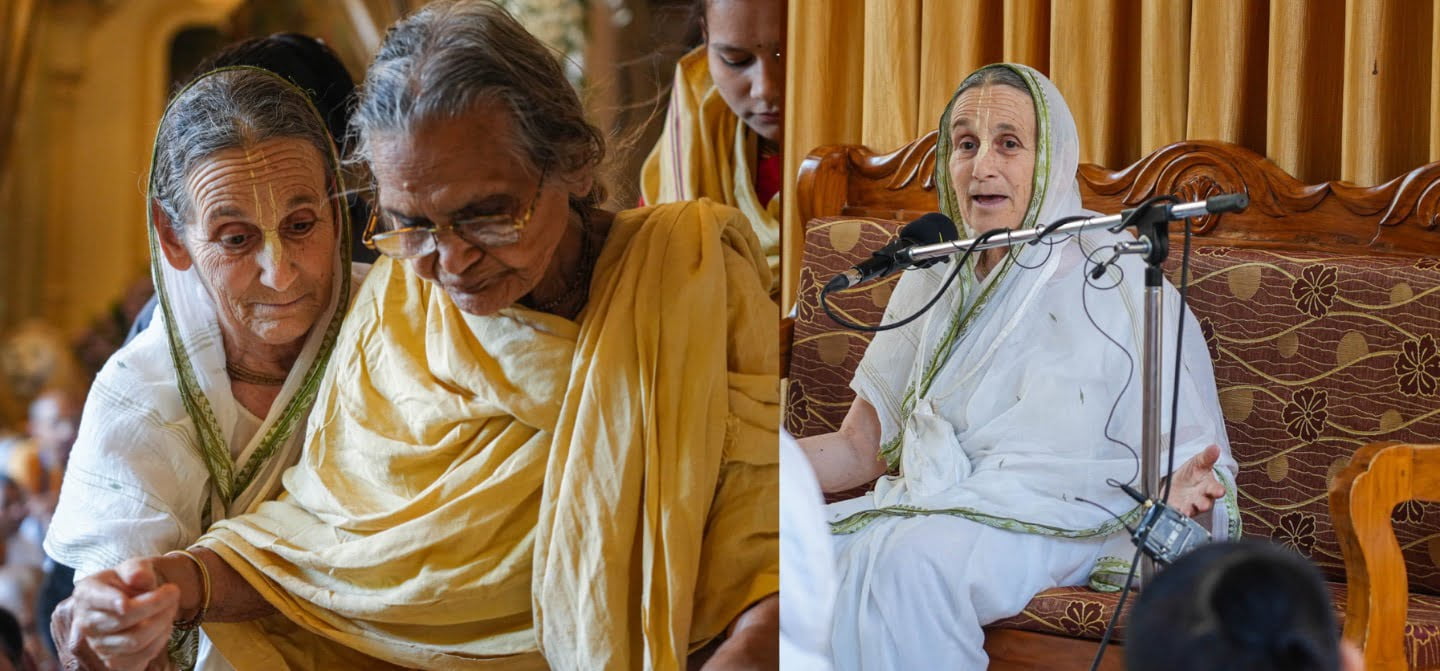A Drug Called Compassion
By Damodara Pandita Dasa | Mar 08, 2009

“God personally came to me! I even gave Him a beautiful flower! It was such a touching experience; so much of my pain is gone. I already feel half cured!”
This may sound like an addict hallucinating under the influence of drugs, but no; it is the soulful outburst of a patient (suffering from post operative depression) eulogising the customary practice of bringing a mobile temple, daily, right to the bedside of every single patient at Bhaktivedanta Hospital, Mira Road.
“Compassion is a drug that is most frequently used here at our hospital, because human suffering triggers off the inner need for divine intervention,” explains chief physician Dr Dhaval Dalal, who enjoys immense popularity from Bhayander to Borivali.
“We are not just talking of physical disease, but mental anxiety and depression. Not everything is curable by chemical drugs!”
A veteran spiritual practitioner, Dr Dalal begins his day with at least three hours of Hare Krishna japa, meditation and scriptural study. He firmly believes in the teachings of Bhagavad Gita that good health revolves around the four basic activities of eating, sleeping, working and recreation. These make up one’s lifestyle.
“Any imbalance in one of these essential activities,” he explains, “either through over indulgence or neglect, could catalyze unhealthy habits that promote serious diseases — not just physical, but also emotional and spiritual distress. Therefore, divine intervention is imperative, in all hospitals, in the form of spiritual counseling!”
Not surprisingly, admitted and discharged patients are encouraged to read spiritual literature and attend regular discourses and seminars in the hospital auditorium on the fifth floor. In addition, qualified counsellors work in shifts, visiting all patients, to address various issues ranging from diet to familial harmony.
“Just sitting at the patients’ bedside and paying personal attention to their needs and difficulties is half the cure; this is what patients tell us,” reveals Dr Dalal.
“Please listen to this letter written by Merwyn Fernandes from IC Colony, Borivli,” says an enthusiastic, bespectacled Amala Prema as she reads, “God, who created me, is love and only love . . .
This love was manifested to me through your loving and caring staff, at Bhaktivedanta Hospital, as a result of which a miraculous recovery took place (in me) well before the stipulated time.”
The hospital has an unusual tradition of remaining in constant touch with its patients through regular monthly programmes.
‘Premanjali’ is a decade long practice of inviting discharged patients, and family members, to a memorable reunion with their respective doctors who orient them about a particular disease – detection and therapy – and how it could be avoided by spiritual based health practices.
The programme, which also includes dramas, kirtana and dinner prasada, is an established favorite with all patients. “I must clarify,” cautions director Dr Ajay Sankhe, “Even though Spiritual Care is a full fledged entire faculty at our hospital, it is not a cover up for medical shortcomings or inefficiency.
Research has proven that both pre and post operative trauma, if left unattended, can promote an acquired syndrome that tends to gauge a less painful situation as being more painful. This means added trouble for doctors and nurses.
That is why patient counseling is the need of the day. Spiritual Care is a very personal affair — it works wonders at our hospital.” Are hospitals sorely meant to trigger off fear and trauma because of pain and prohibitive costs?
In the feverish race to exploit Mumbai’s rapidly declining health graph, would it be wise for corporates and cash strapped investors to presume that genuine healing, and a lasting cure, are the logical outcome of erecting leviathan hospitals and ultra modern diagnostic centres?
Is it really worth the effort bartering honesty, loyalty, integrity and dedication for super competency, mass turnover and malpractice? Ignoble ambition desensitizes the heart and divests it of compassion which is so vital and essential for modern medical science.
There is no limit to compassion, but avarice invariably meets its untimely end. Honest experience has proven, more than often, that a caring, gentle heart can offer more genuine relief than a deft but cold professional hand. When compassion possesses the heart of a selfless practitioner, then and only then, medicine becomes a divine science. (The author has had extensive experience in patient counseling at Bhaktivedanta Hospital.)



